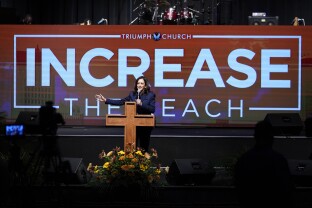Democrats are counting on Black voters to, once again, be a critical part of their winning coalition. And, once again, they’re relying on Black churches to be the driving force to get “souls to the polls.”
The problem is that the type of Black voters Democrats need to win — young Black voters — aren’t flocking to churches in the same way that their elders did in their youth.
Data from the American Enterprise Institute reported that more than a third of Gen Z identified as religiously unaffiliated in 2021.
